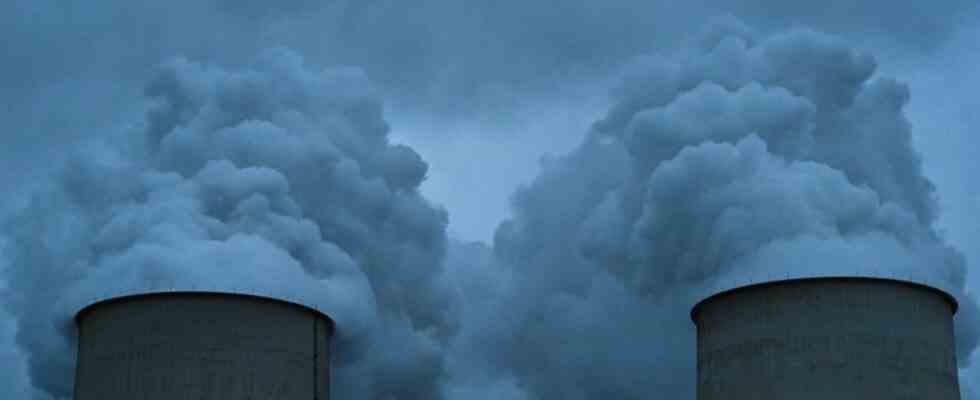energy
War in Ukraine slows France’s exit from coal
Steam rises from the cooling towers of a lignite-fired power plant early in the morning. (Iconic image) Photo: Patrick Pleul/dpa-Zentralbild/dpa
© dpa-infocom GmbH
The last coal-fired power plant in Lorraine should actually be shut down in a few days. But problems at the nuclear power plants and above all the Ukraine war are slowing down France’s exit from coal.
Actually, the exit from coal in France had long been sealed. At the end of March, the last coal-fired power plant in Saint-Avold near Saarbrücken, with the exception of one reserve power plant, was to be taken off the grid.
In good time before the presidential elections in April, the farewell to coal-fired power generation, which is no longer relevant and climate-damaging in France as a nuclear country, would have been completed. But for a few weeks now, the power plant has been running at full speed thanks to a special permit. 90,000 tons of coal imported from Russia before the start of the Ukraine war are being burned day and night. Whether the power plant really closes next Thursday is suddenly in question.
A spokeswoman for the Ministry of the Environment in Paris told the German Press Agency that the situation was being reassessed. Two factors played a role: Of the 56 French nuclear power plants, 15 are currently off the grid for maintenance and due to corrosion problems, and for a long time there will be less nuclear power than planned. With the war in Ukraine comes a new constraint, scenarios of reduced availability of natural gas, which is also used to generate electricity, have to be run through. The national electricity company EDF and the network operator were asked to investigate.
Is the term extended?
As the broadcaster “Europe 1” learned from the Environment Minister’s environment, the term of the power plant in Lorraine will probably be extended. “With the war in Ukraine we are in a new situation, we will make a decision in the next few days,” the broadcaster quoted as saying from the environment minister’s environment. The open day at the power plant this Saturday will probably not mean an immediate farewell for residents and former employees of the «Emile-Huchet» power plant.
The announced closure of the power plant met with a lack of understanding among the employees, particularly in view of the energy crisis. As trade unionist Jean-Pierre Damm told the newspaper “l’Obs”, it makes little sense to close the power plant and then buy coal-fired electricity from Saarland out of necessity. “Where’s the ecological benefit?” he said. “I’m not saying we have to go on for ten years. But if we have to do without Russian gas, we will still need the coal in the next few months.”
No matter how long the grace period for the power plant, which was opened in 1981 by the newly elected President François Mitterrand, is, the former steel and coal region of Lorraine has been struggling for years with structural change after the coal mines and most of the steelworks were closed. The foundation stone for a biomass power plant was laid at the Saint-Avold site in December. There are also plans for a cross-border hydrogen project involving Luxembourg and Saarland.

